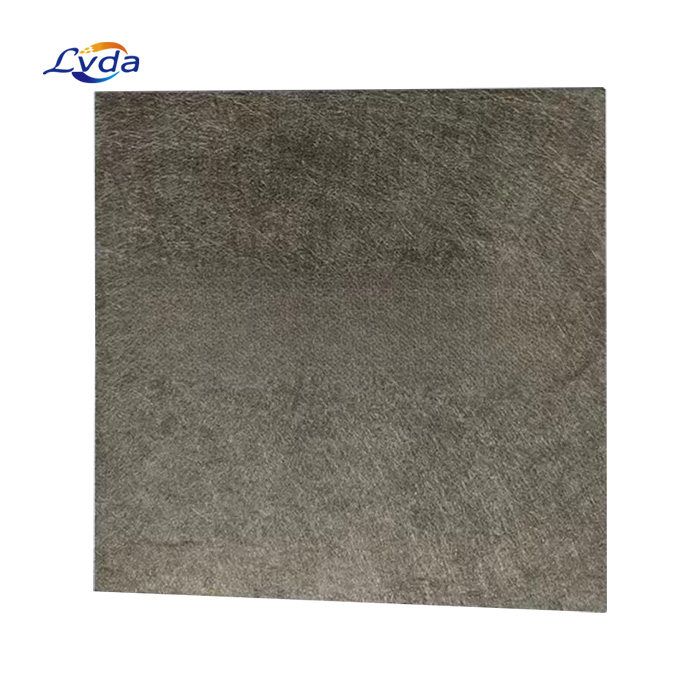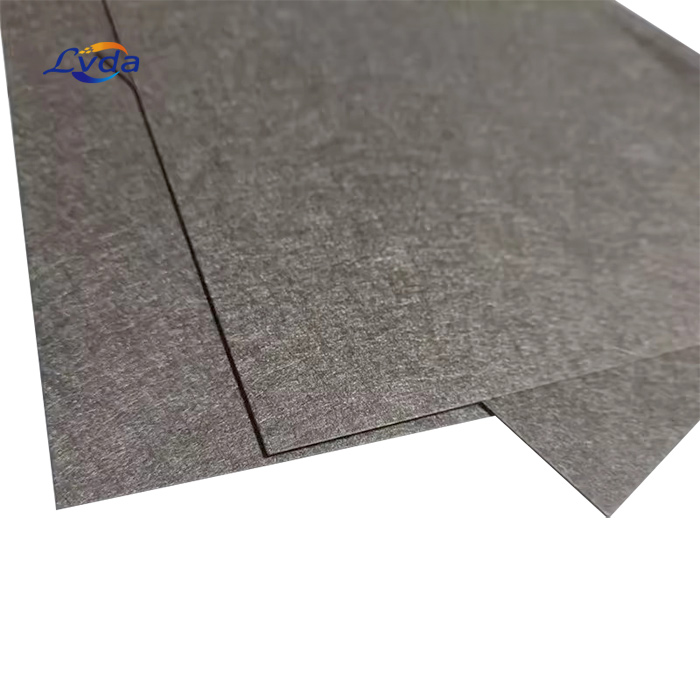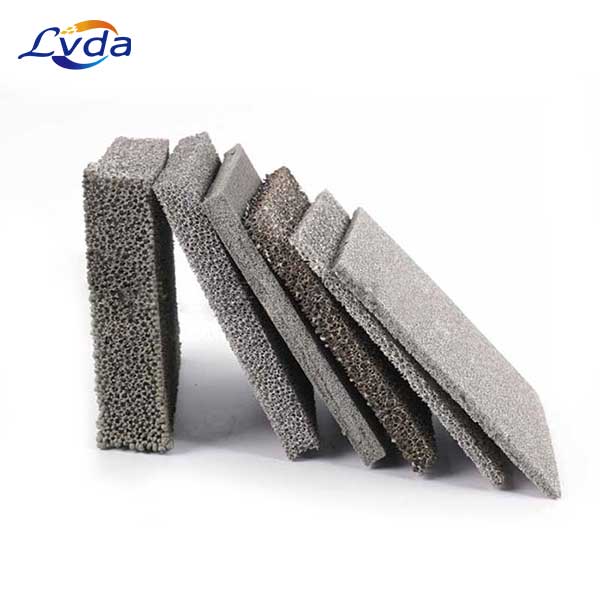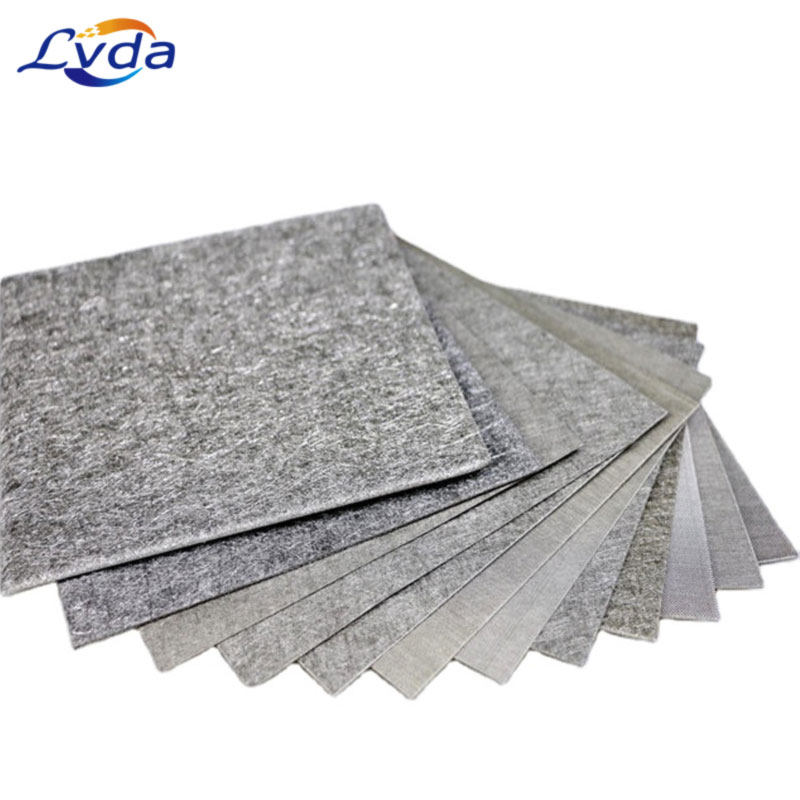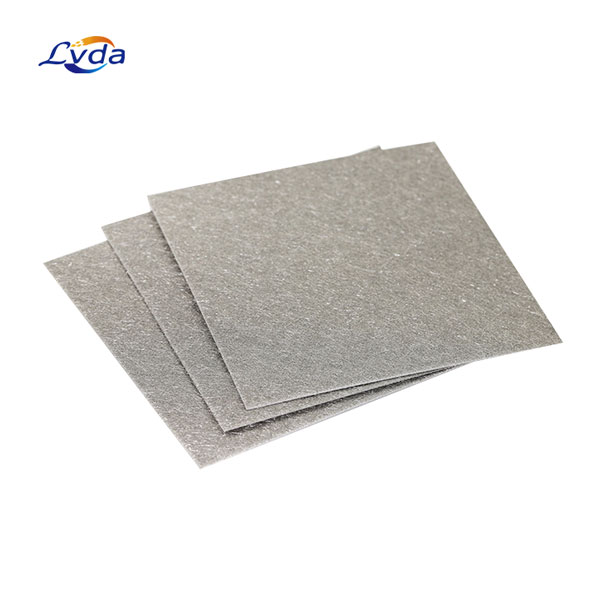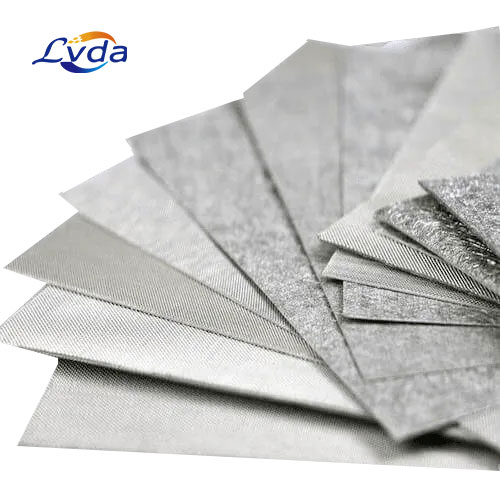Product Details
Platinum plating titanium felt is a specialized material used in electrolyzers for hydrogen production. Electrolysis is a process that uses electricity to split water into hydrogen and oxygen gases. This method of hydrogen production is considered clean and sustainable, as it only requires water and electricity.
The platinum plating on the titanium felt serves several critical functions in the electrolysis process. Platinum is an excellent catalyst for the electrochemical reactions involved in splitting water molecules. It facilitates the transfer of electrons between the water molecules and the electrodes, thus enhancing the overall efficiency of the electrolysis process.
Parameters
Ti Content : 99.6%
Porosity : 60% - 80%
Thickness : 0.2 - 0.8mm (0.2/0.4/0.6/0.8 mm)
Filtration Accuracy : 1 - 200μm
Working Strength : 0.1 - 30MPa
Properties of Platinum Plating Titanium Felt
1. Catalysis
The platinum plating acts as a catalyst, significantly improving the rate of the electrochemical reactions involved in the electrolysis process.
2. Corrosion Resistance
Titanium, being the base material, is highly resistant to corrosion, even in harsh environments such as seawater or acidic conditions. This makes it an ideal material for electrolyzers that may be exposed to aggressive chemicals or environments.
3. Electrical Conductivity
The platinum plating enhances the electrical conductivity of the titanium felt, which is crucial for efficient electron transfer during the electrolysis process.
4. Mechanical Strength
Despite its flexibility, the material has good mechanical strength, ensuring durability and longevity in electrolyzers.
5. Thermal Stability
The material can withstand high temperatures, making it suitable for use in applications where the electrolyzer may be exposed to elevated temperatures.
6. Flexibility
Unlike rigid filtration materials, metal fiber sintered titanium felt can be bent or shaped, offering design flexibility for engineers.
7. Biocompatibility
Titanium is biocompatible, meaning it does not react with living tissue. This property is particularly important in medical applications where water filtration is required for sterilization or cleaning purposes.
Applications of Platinum Plating Titanium Felt
1. Industrial Hydrogen Production
In industrial processes, such as chemical manufacturing or power generation, platinum plating titanium felt can be used to enhance the efficiency of electrolyzers for hydrogen production.
2. Renewable Energy Storage
Hydrogen is considered a promising energy storage medium for renewable energy sources such as solar and wind power. Platinum plating titanium felt can be used in electrolyzers to convert excess renewable energy into hydrogen, which can then be stored and used when needed.
3. Fuel Cell Applications
Hydrogen produced through electrolysis can be used in fuel cells to generate electricity. Platinum plating titanium felt can be used in both the electrolyzer and the fuel cell, as platinum is also an excellent catalyst for the reverse reaction in fuel cells.
4. Transportation
Hydrogen is being explored as a clean fuel for transportation, particularly in the automotive industry. Platinum plating titanium felt can be used in electrolyzers to produce hydrogen for fuel cell vehicles.
5. Domestic Hydrogen Production
Although more commonly used in industrial settings, platinum plating titanium felt can also be employed in domestic electrolyzers for hydrogen production, providing a high level of efficiency and durability.
Advantages of Using Platinum Plating Titanium Felt
1. High Efficiency
The platinum plating significantly improves the efficiency of the electrolysis process, leading to higher hydrogen production rates.
2. Durability
The corrosion resistance and mechanical strength of the material ensure a long service life, reducing the frequency of replacements and maintenance costs.
3. Customizability
The flexibility of the material allows for customization of the electrolyzer design to meet specific requirements of different applications.
4. Clean Energy
The use of platinum plating titanium felt in electrolyzers contributes to the production of clean and sustainable hydrogen energy.

 English
English اللغة العربية
اللغة العربية বাংলা
বাংলা Deutsch
Deutsch Français
Français Bahasa Indonesia
Bahasa Indonesia Русский алфавит
Русский алфавит Español
Español اردو
اردو Português
Português
